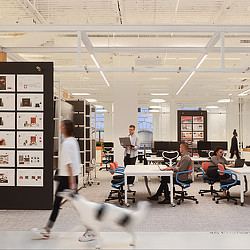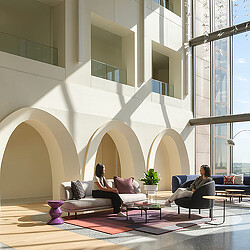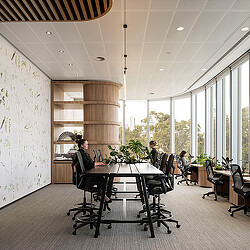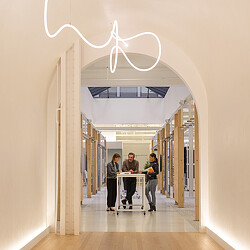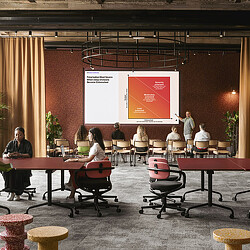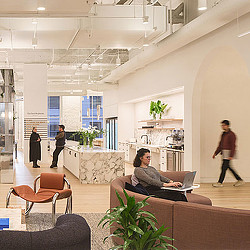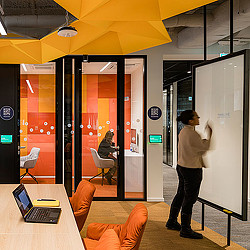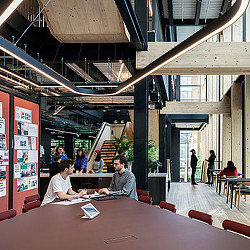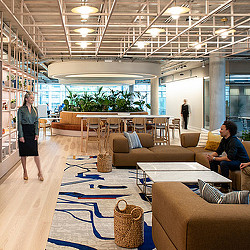How Your Workplace Can Supercharge Performance
What workplaces can learn from the gym and the football pitch about creating environments that inspire workers to stretch, develop, and achieve their goals.
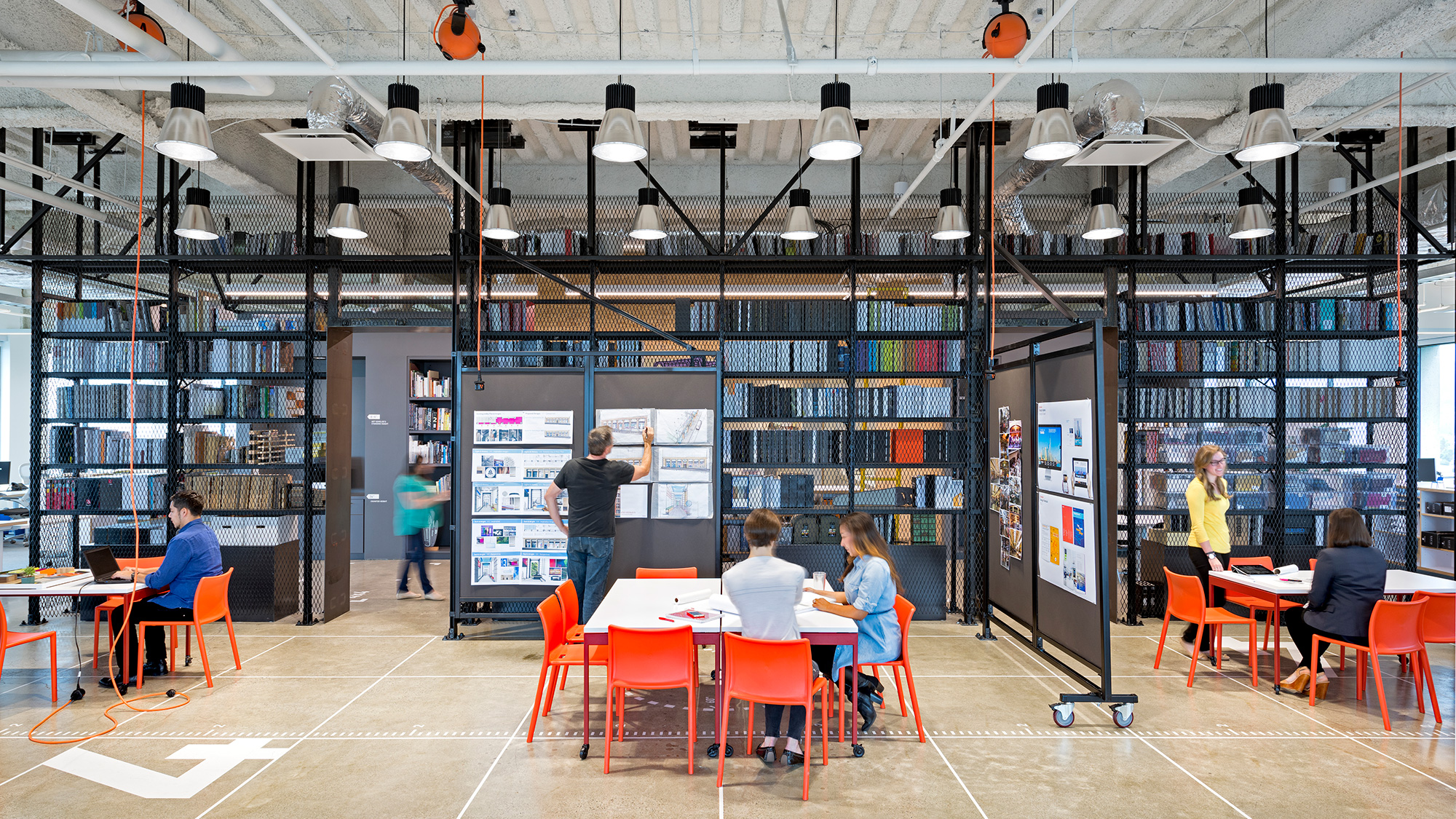
Editor’s Note: This blog post originally appeared in BE News.
If we have kitchens in our homes, why do we go to restaurants? If we have TVs in our homes, then why do we go to the cinema? And if we have workspaces in our homes, then why would we go to an office? To answer this last question, we surveyed 16,000 office workers in Gensler’s Global Workplace Survey. The research uncovered valuable insights into why workers value the office, and how the workplace can supercharge performance.
When asked to describe their ideal experiences for their company’s office environment, workers across generations in the U.K. imagine an environment like a coffee shop or boutique hotel:
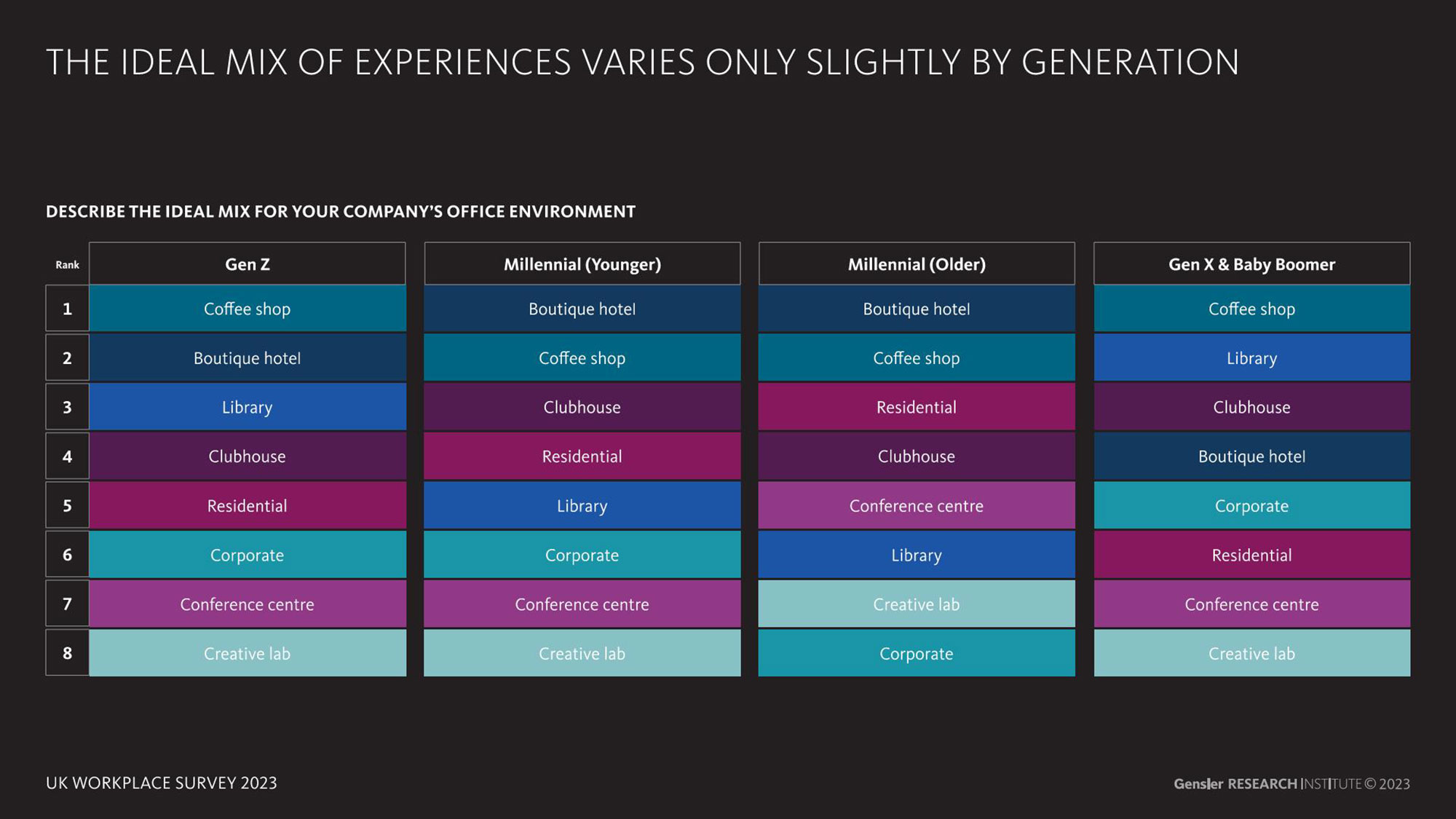
But while workers want the office to feel like a hospitality experience, people across generations and living situations in the U.S. and the U.K. told us they value the office as a place to focus, to work with teams, and to get things done:
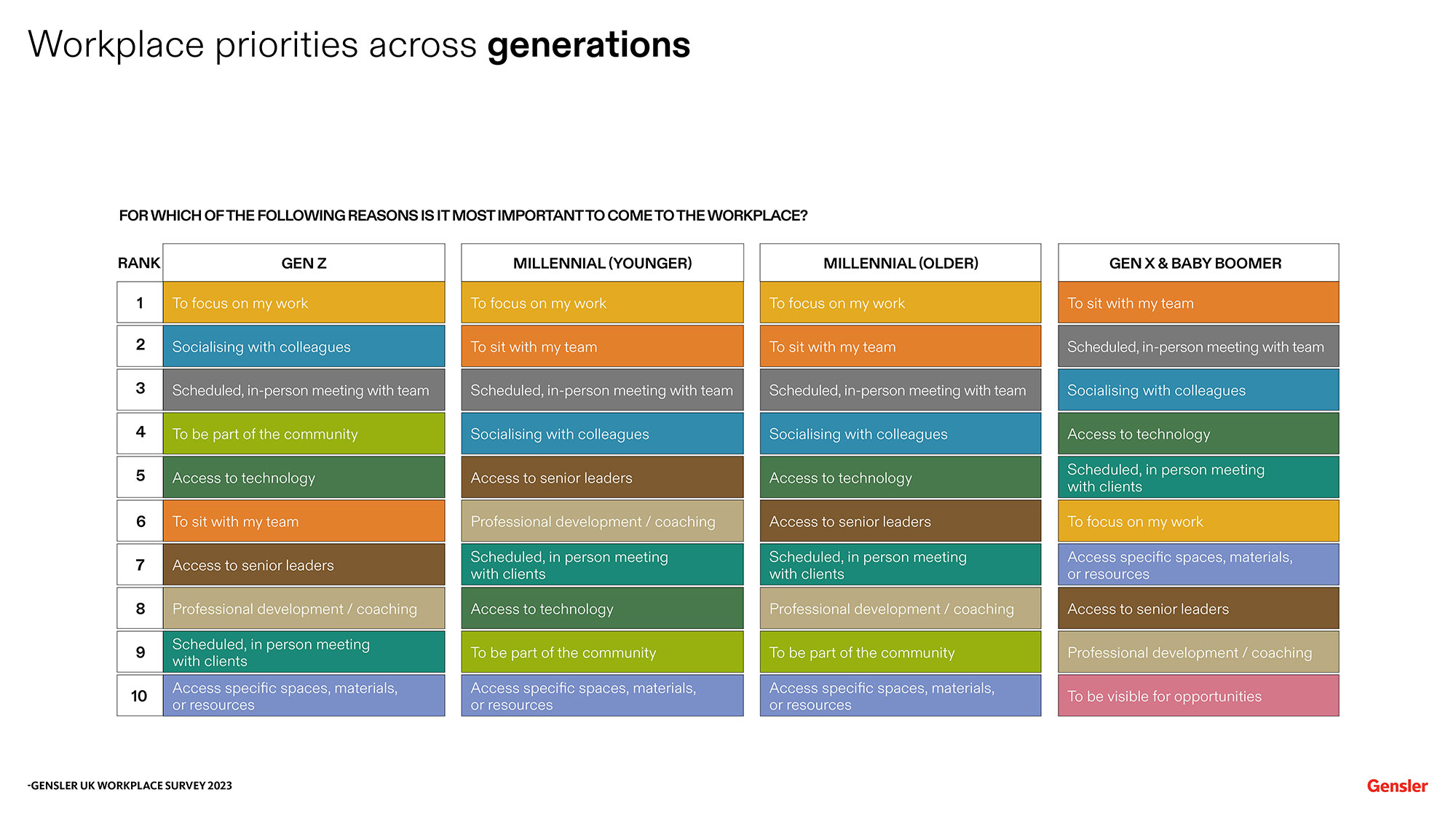
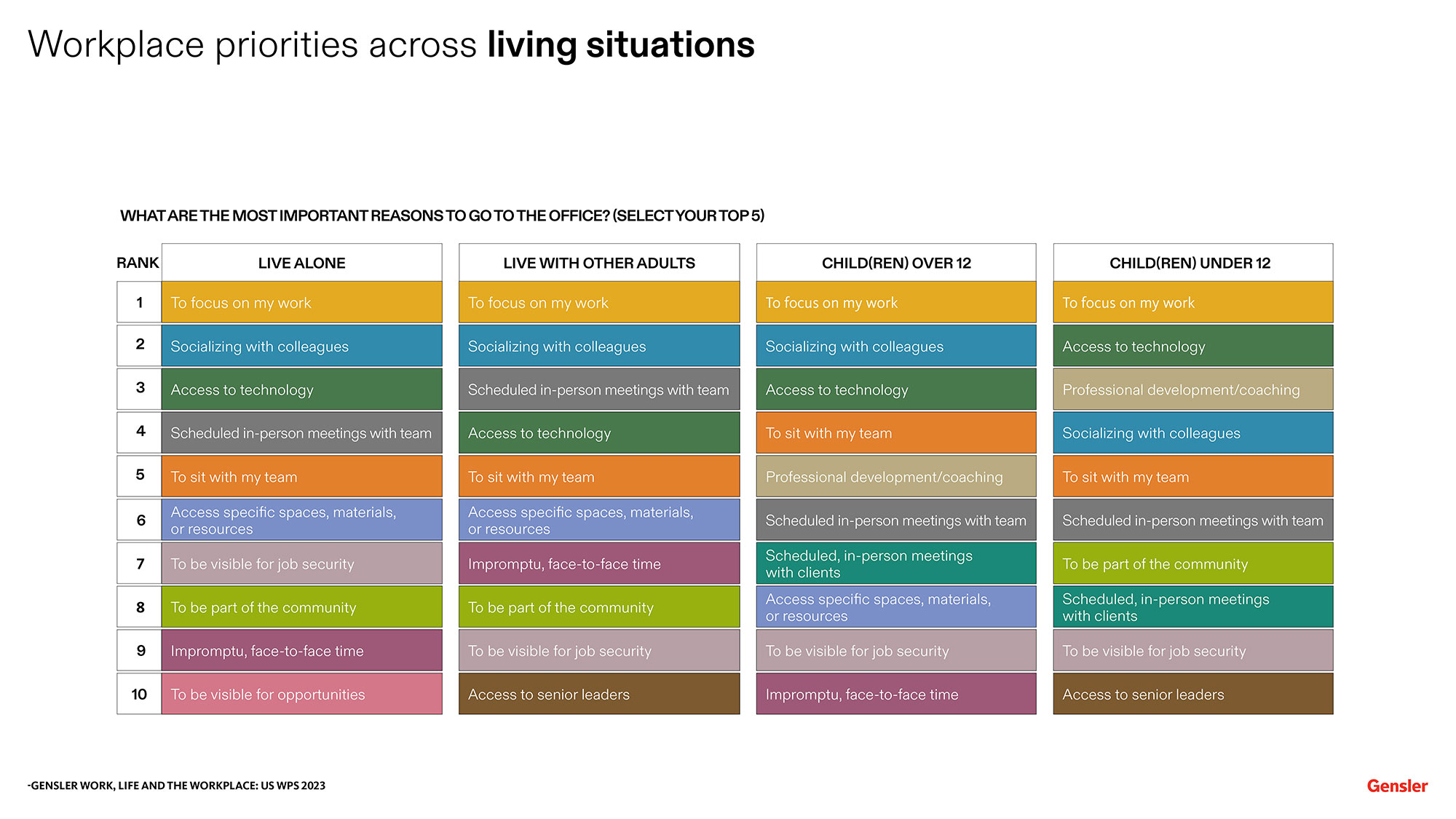
In other words, what makes an office special — what gets people out of their homes and into the office — is that it’s a unique platform to accomplish our work, alone and with others.
To create a workplace that inspires workers to stretch, develop, and achieve, perhaps we should learn from another environment designed to help us achieve our goals: the gym.
The Gym
If you don’t love going to the gym, you’re not alone: in Angela Duckworth’s research on grit, she spoke with Olympic athletes, spelling bee champions, and chess grand masters, and it’s remarkable how many of these masters dislike the deliberate practice that got them there. And yet they persist through the day-to-day grind because they are focused on longer-term goals.
A workplace that is designed for deliberate practice and achievement, like a gym, is, first of all, a place to showcase greatness — whether it’s an award-winning deliverable or a masterful product pitch. Our environment should inspire us to set stretch goals; it should be a place we walk through every day and think, “Someday, I’ll be as good as that.”
Then, our workplace must provide environments to concentrate on our skills — places of focused attention that are free from distractions and temptations to abandon activities that are difficult and repetitive. And indeed, our workplace survey showed that high-performing workplaces were three times more likely to provide access to spaces for focused concentration than low-performing workplaces.
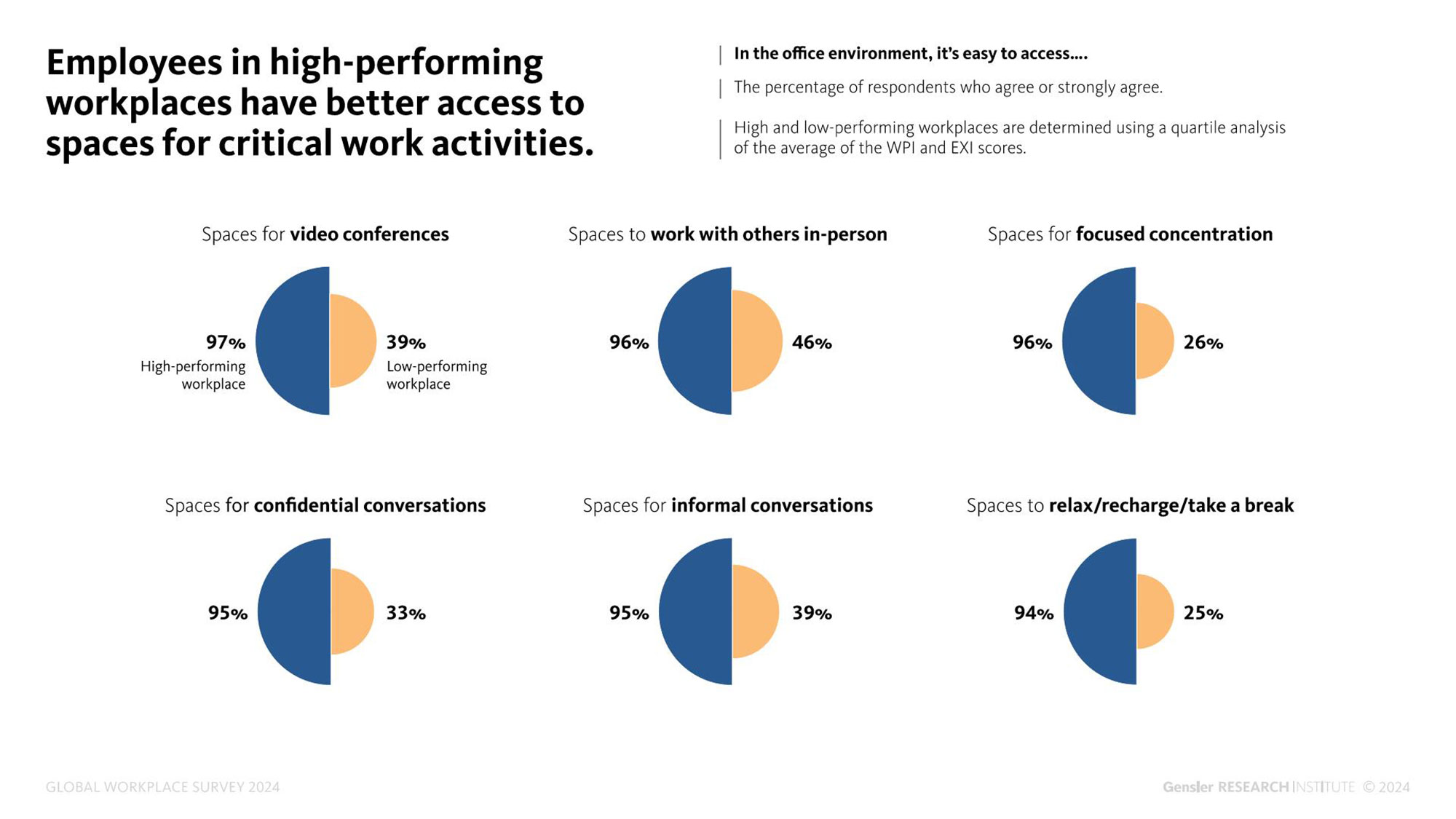
And finally, what makes a gym so effective is our coach or personal trainer who observes our progress and tells us what we could be doing better. And research indicates that this kind of feedback and mentorship is much more likely to happen in person than virtually. Emanuel, Harrington, and Pallais found that “Proximity increases on-the-job training. Engineers working in the same building as all their teammates received 22% more online feedback than engineers with distant teammates,” and that “proximity boosts [employees’] long-run development [and] increases on-the-job training.”
The workplace can bring immense value to individuals by creating an environment for coaching, concentration, and deliberate practice. But few achievements these days are individual, and very few problems can be solved alone. At some point, we need to leave the gym, and step onto the football pitch.
The Pitch
The workplace, like the football pitch, is common ground for people from different generations, abilities, ethnic or socioeconomic backgrounds to come together around shared values and passions. In fact, 77% of respondents to our workplace survey formed friendships with people of other races and ethnicities in the workplace, and 88% formed friendships with people of other ages.
But then, the hard work starts: all those diverse players with their different skill sets must learn to operate as a single unit despite their individual differences. And to do this, they must argue with each other. This constructive disagreement, while difficult, is critical to team formation and cohesion.
According to organizational psychologist Adam Grant, “Task conflict has been linked to higher creativity and smarter choices. There’s evidence that when teams experience moderate task conflict, they generate more ideas... innovate more... and make better decisions.” Or as Leonard and Straus put it, “If you want an innovative organization, you need to hire, work with, and promote people who make you uncomfortable.”
And finally, the pitch is the arena of play, where we test our capabilities against ourselves and our peers. What is your game day, and how is your workplace preparing you for it? What is that moment when you need to be at peak performance?
Our workplace survey showed that we want our workplaces to feel like a boutique hotel, but function like a gym and a pitch. Grinding at the gym and arguing on the pitch are both difficult. But perhaps that’s what makes them so important. Maybe we value the office because it’s a place where we can do challenging things. And learning to do challenging things is more important than ever.
It’s entirely possible these days to surround ourselves with friends, neighbours, and acquaintances who all grew up the same way, vote for the same people, worship in the same institutions, eat the same cuisine, and consume the same media. In fact, the workplace may be the last place in our society where we form relationships with people unlike ourselves. In an increasingly polarised world, perhaps the ability to disagree constructively and find common ground — a skill we learn in the workplace — is one of the most important of our time.
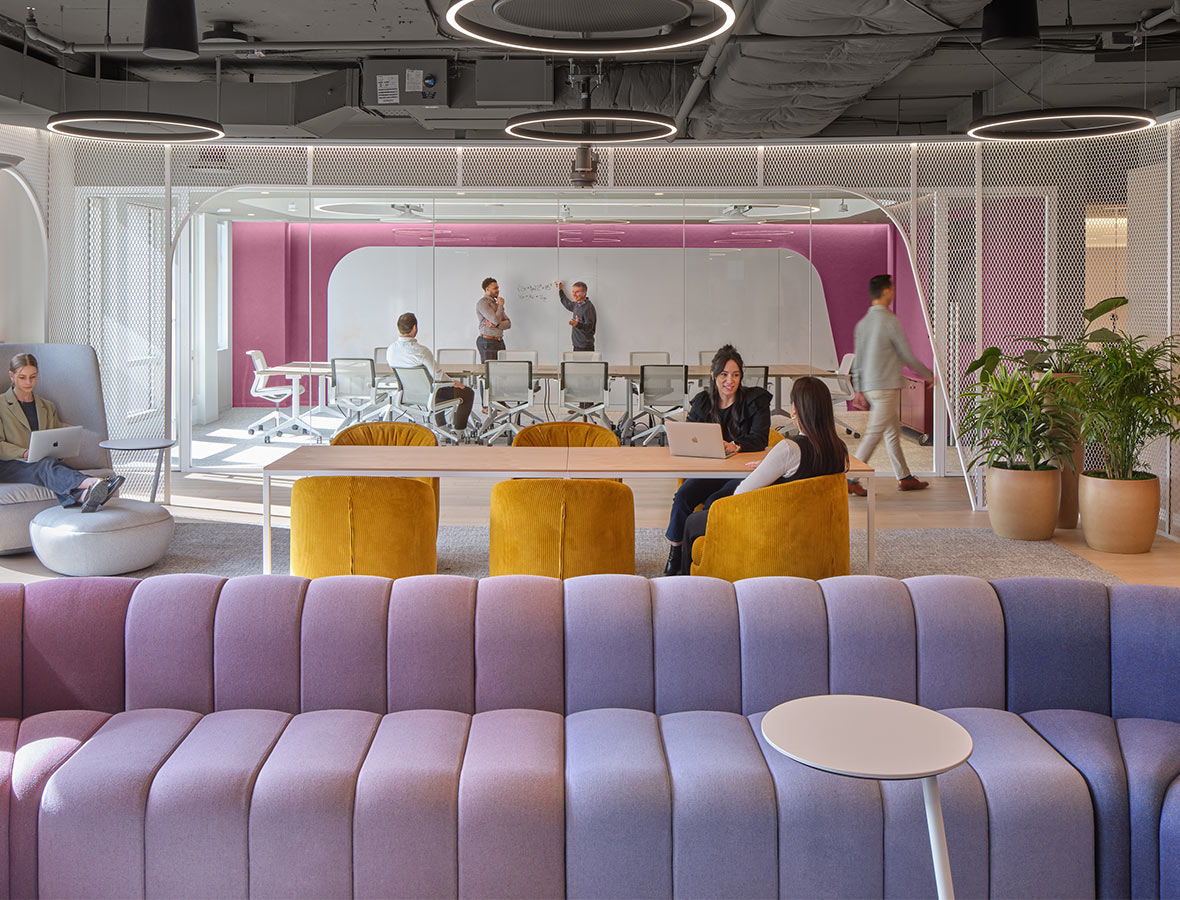
For media inquiries, email .

